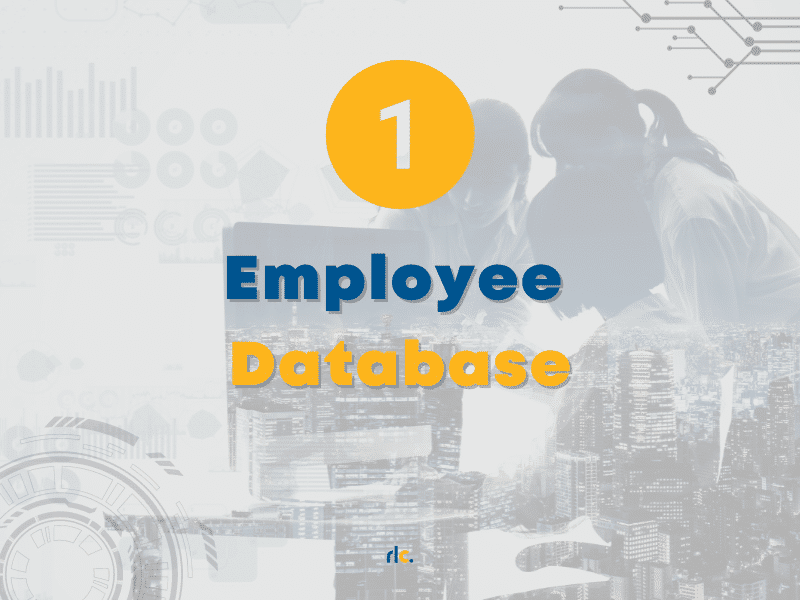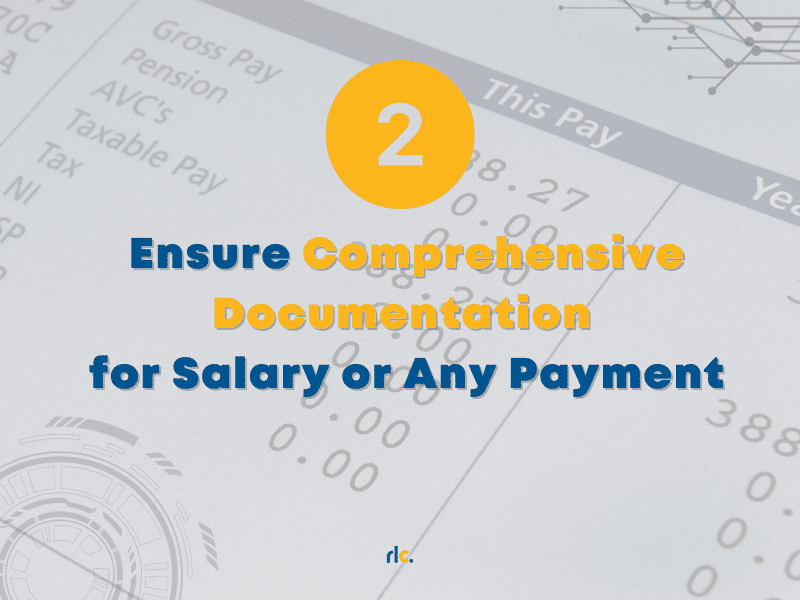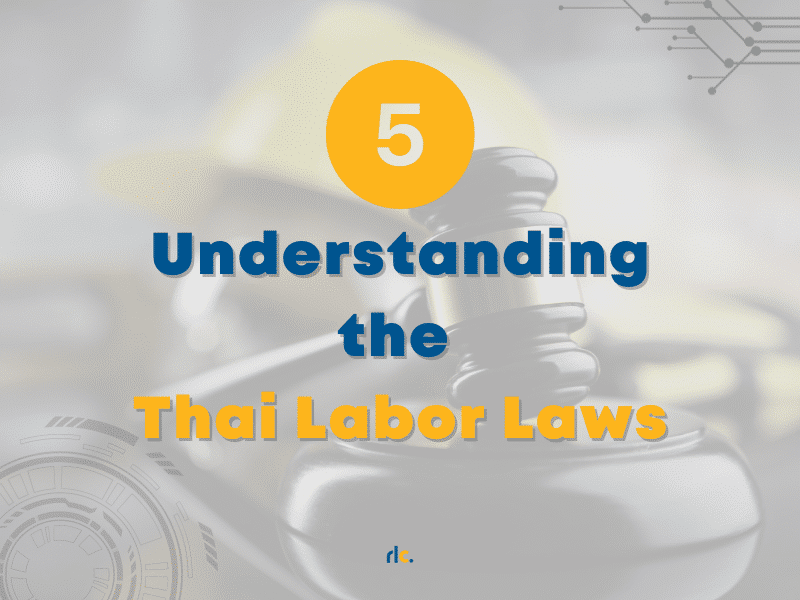For business owners and employers, especially those running SMEs with permanent staff, handling employee salaries is an inevitable task. It’s safe to say that many entrepreneurs encounter challenges related to payroll, particularly in smaller companies where there might not be a dedicated payroll department, leaving the responsibility to the business owner. With this in mind, we’ve compiled a list of 6 essential things every employer should know about managing employee salaries.

1. Employee Database
It’s essential for business owners to prioritize a comprehensive employee database. It’s not just useful for payroll purposes but also crucial for effective personnel management within the organization.
Detailed employee records, particularly about their job roles, enable employers or business owners to conveniently access information about each staff member. This includes job positions, nature of work, work hours, salary details, leave records, tardiness, absences, and more.
Such comprehensive work-related data makes it easier for employers to track employee performance and accurately calculate wages or salaries.

2. Ensure Comprehensive Documentation for Salary or Any Payment
When paying salaries to employees or staff, it’s imperative for business owners or employers to possess verifiable evidence of payment. Such documentation not only serves as proof of payment but also confirms adherence to the agreed-upon employment contract terms. Commonly, this might take the form of bank transfer slips, salary slips, or it could be receipts, cash vouchers, payment acknowledgments, or substitute receipt certificates, to name a few.

3. Tax Deductions
A pivotal detail in the salary payout process is the tax withholding. Every time you pay an employee’s salary, this obligation comes into play since salaries fall under section 40(1) income. The Personal Income Tax (PND) is calculated based on a progressive rate.
As a business owner, you need to project an employee’s annual income based on their salary, subtracting expenses, personal deductions, and social security contributions. This net income is then used to compute the due tax.
Once you’ve established the taxable amount, you can distribute it evenly across the salary periods. It’s worth noting that this can get intricate, especially for businesses with a diverse workforce and varied salary structures. Thus, entrepreneurs can opt for payroll software or even using payroll outsourcing service to navigate this maze more efficiently.

4. Social Security is mandatory
For business owners employing staff, it’s crucial to register as an employer within 30 days from the date of hiring. Today, when business owners establish a legal entity with the Department of Business Development, they are automatically registered as employers with the Ministry of Labor’s Social Security Office.
Hence, once you bring on board new employees, you can easily proceed to register them or their insurance beneficiaries at the Social Security Office. Additionally, the convenience of online contributions is at your fingertips; you can submit social security contribution data seamlessly via the Social Security website under the Electronic Services (E-service).

5. Understanding the Thai Labor Laws
Every entrepreneur should be well-versed in the basics of labor laws. Essential aspects that businesses should be familiar with include employment contracts drawn between the employer and employee, specifying working hours, designating legally mandated holidays, entitlements such as vacations, personal leaves, sick days, overtime provisions, and compensations for working on days off.
It’s also crucial to understand the compensations tied to work-related injuries or illnesses, ranging from medical expenses to disability support, funeral costs, and more. Employers can delve deeper into the specifics of labor laws on the Ministry of Labor’s website, which provides a comprehensive guide on labor rights and responsibilities.
It also details the penalties for non-compliance or violations, arming both employers and employees with the knowledge they need to ensure fair and legal workplace practices.

6. Accuracy and Punctuality
One of the critical aspects of salary management is to pay employees Accuracy and Punctuality, as per agreements. Employers who miss payment schedules are essentially defaulting on their commitments.
As per legal regulations, if an employer fails to meet the agreed payment date, they could be liable for interest charges of either 7% or 15% per annum. Furthermore, if the employer falls under specific labor protection laws, they might incur an additional 15% interest every 7 days from the missed payment date.
To avoid complications and potential complaints from employees, employers should consider employing tools and systems, like payroll software, to streamline the payment process, ensuring on-time and error-free salary disbursements
Summary
Managing employee salaries is a more intricate process than one might initially believe. It encompasses various facets, from establishing agreements between employers and employees, tracking work hours, taxation considerations, social security contributions, to adhering to labor protection laws.
The complexity amplifies as the number of employees increases. Sometimes, hiring a dedicated person just to manage salaries may not be the most cost-effective solution.
Any discrepancies in salary payments, be it delays or errors, can adversely affect employee morale, potentially impacting overall business operations. Therefore, employers should thoroughly understand and be proficient in salary management to ensure smooth business operations

SEO Specialist and Client Success at RLC Outsourcing


